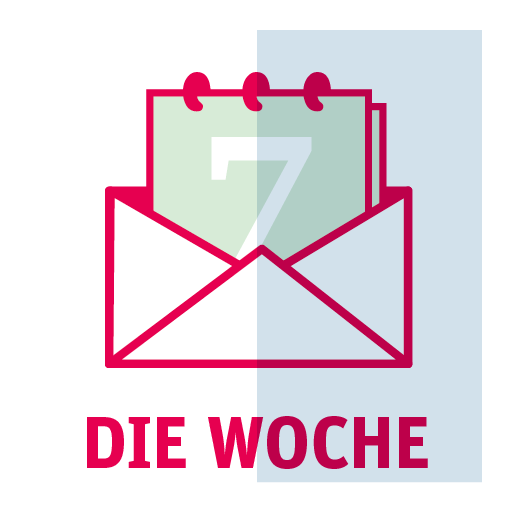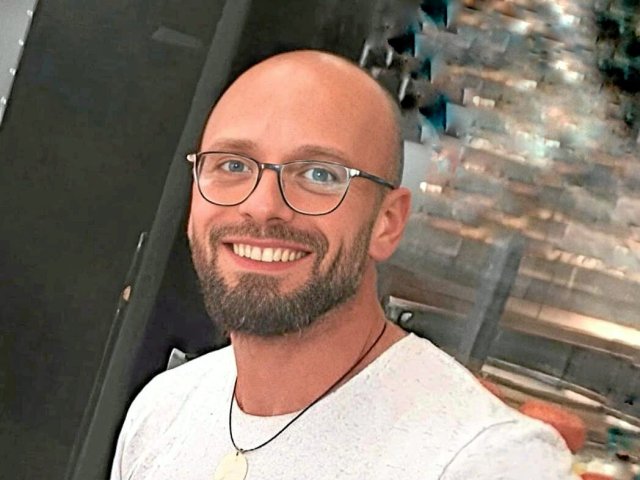Photo: private
They come from Syria, lived in Damascus and studied media sciences and theater there. How do you remember back then?
I worked as a director and actor. Theater and films, that’s my world. I had worked hard in Syria – in the end I even had a bar and a café in Damascus. But I lost everything through the war and the problems with the government. Because of the war I only ran to Turkey. There I worked as a radio presenter and producer, but due to our programs I got problems with the Islamic State (IS) and had to flee again, this time to Germany.
Because of the programs they had problems with IS? You were in Turkey, how could IS have problems causing you?
We founded a radio station in Istanbul and talked about politics, society and culture, mostly with a lot of black humor and of course always about Syria. People had noticed that from IS and of course they didn’t like that. At some point it became too dangerous, even for me personally. That’s why I decided to flee Germany: Greece, Albania, Kosovo, Serbia, Hungary, Austria – these were my stations until I arrived in Germany.
Interview
Tareq Alwawi43, is an artist and theater maker. He works in child and youth work and, with his works of art, brings the voice of the 2015 refugees to the screen and the stage. In 2015 he filmed his own escape.
Istanbul is a huge city. Did you cope?
It was very difficult to finance yourself, but I had no other choice. The first six or seven months in Istanbul in particular were extremely difficult: I lived in a small room with two people, slept in an armchair like a child and had no money for eating. I often only bought a bread and soup powder- that was my lunch and dinner. During this time I lost about twelve kilos. Later, when we founded a group for the radio and workshops with children, we found a sponsor and I was able to rebuild my life.
They had to go to the army in Syria. How was that?
In Syria we have compulsory military service, for about two years. But because of my studies and my work, I was able to delay the service for ten years. At that time I worked with an eleven team on a project, we visited around 150 cities for over five years. Every week we worked there with around 1,500 children on topics such as self -development and our own opinion, but because of my armed service I had to terminate it. When I started to finally do my military service at 28, I was unlucky. The war began three months before he had finished.
Did you do part of your armed service during the war?
Yes, that was very bad. I didn’t want to do any violence to anyone, so I didn’t shoot. I always said “no”. And so I came to prison, where I took a year. On my last 53 days I was caught in a cell that was only a square meter tall, I couldn’t sleep, I couldn’t sit, I always had to stand. That was too much, I didn’t want to.
How did you let them out again?
At some point they told me that I only had one way, either I have to shoot or shoot them. I have to do a task now and I said okay. As soon as I had the opportunity, I blew off, I was 31 years old. That was on March 11, 2013 when I left Syria.
The life they had built up collapsed twice. What was the feeling of having to leave everything again and again and just start with a few things?
It was very difficult, but I always had a little hope: maybe it will be better tomorrow, maybe I can do something to help others. While we operated our radio project in Istanbul, I also founded a project with my friend group: interactive theater and workshops for the refugee children on the Turkish border. But it was also dangerous in Turkey, and I had no real documents, no future. In Turkey I was only considered a guest, that was my official status. I tried to live there for two years, but when the situation got worse, I went to Germany.
What was the first stop in Germany?
Munich, where we worked with British television, a TV interview and things like that, we had taken our escape and made it a film.
Have you filmed your flight? Have the police not confiscated everything on any of the borders?
That’s why our trip was more difficult than the normal journey. Most go from Turkey to Greece, Macedonia and then continue. With us the route went from Greece via Albania, Kosovo, Serbia. We usually worked on our material at night. In the morning we stayed in a broken building or in the forest. Overall, our trip lasted from May 5th to 23rd, 2015.
Nd.Diewoche – Our weekly newsletter

With our weekly newsletter Organization Look at the most important topics of the week and read them Highlights our Saturday edition on Friday. Get the free subscription here.
In Germany they started again with their art projects. Where does this will?
My first step here was to establish myself, and the best way for me was the art, especially the theater to tell our stories. During this time I realized five photo exhibitions and four plays in Germany. I also worked as a theater teacher at the University of Tübingen, as part of the so-called Refugee program. At the same time, I started training as a youth and home educator at the technical school for social affairs. After that I started my professional career. From 2015 to 2019 I was active in the field of art, theater and film and made three short films. After that I worked in a daycare center and since July 1, 2023 I have been working in a youth welfare facility.
Already in the asylum seeker accommodation you have continued work with young people. How were the children at the accommodation?
On the first day in the children’s home, I organized activities with friends there for the children. We told the leader what our profession is and quickly realized that the children and young people had nothing to do there and bored. For example, there was a one-year workshop project entitled “The Little Journalist”, which we did with the district office in Tübingen and the organization of cultural assets. It was aimed at refugee children, children with migration history and German children and went to the topic of children’s rights.
What was important to arrive in this country?
The most important thing are security and language. If a person has security, he can build a lot. This is not possible with constant uncertainty. Then the language comes: it helps to understand society and the German mentality – it is very different from the Arabic. You have to learn to accept other opinions and at the same time expect your own respect. It was never a problem for me when people ask a lot of questions. It was only difficult that it was often associated with prejudices. Many were surprised and asked strange things: »Do you have cars in Syria at all? TV? ”Some could hardly believe that I had a bar and a café in Damascus and were shocked that alcohol is also being drunk in Syria. But Syria is diverse: there are Muslims, Christians, Jews and many mentalities. It was normal for me. I could always tell and explain a lot about it – only not everyone had the patience for it.
judi bola sbobet link sbobet link sbobet
